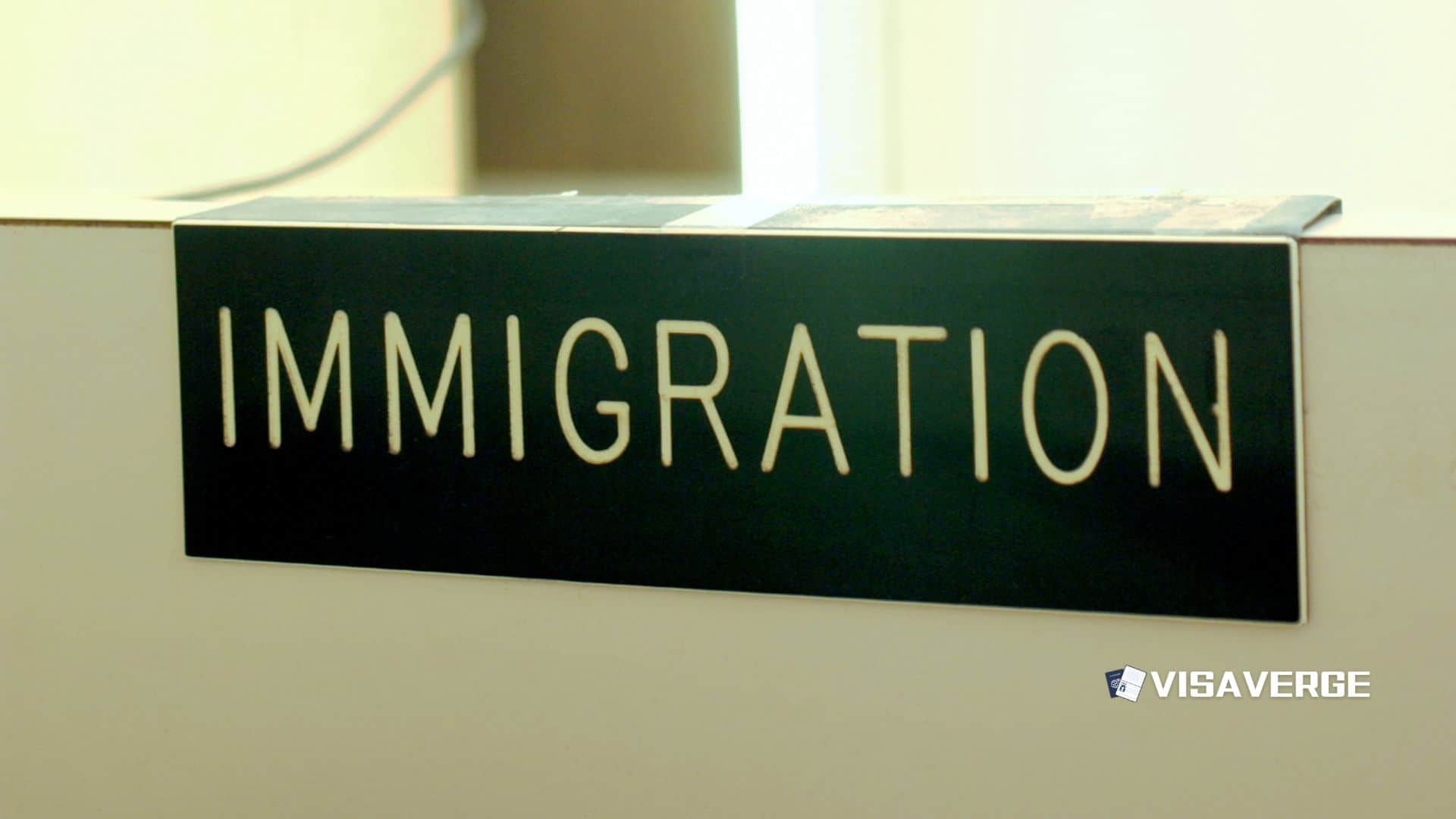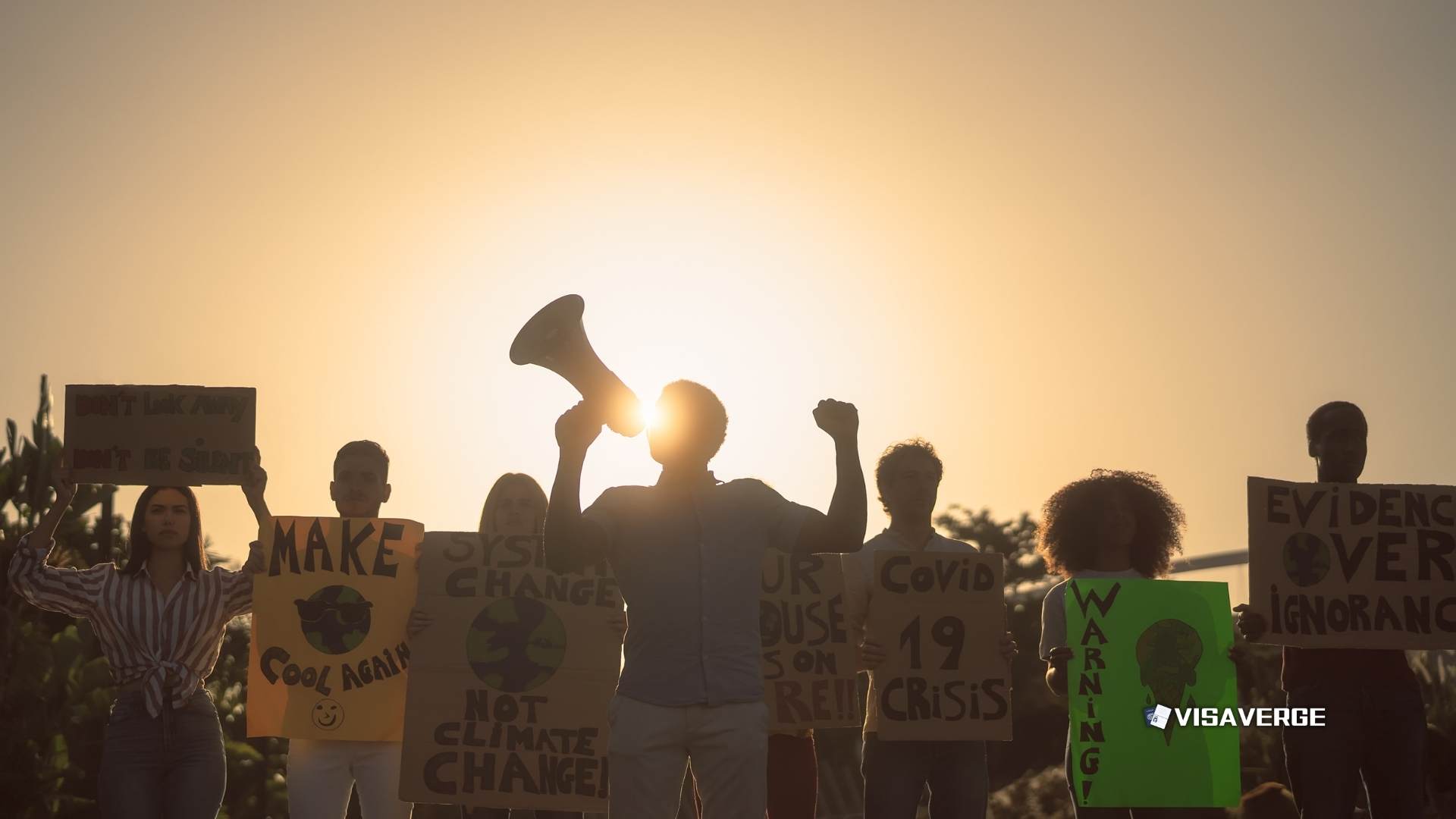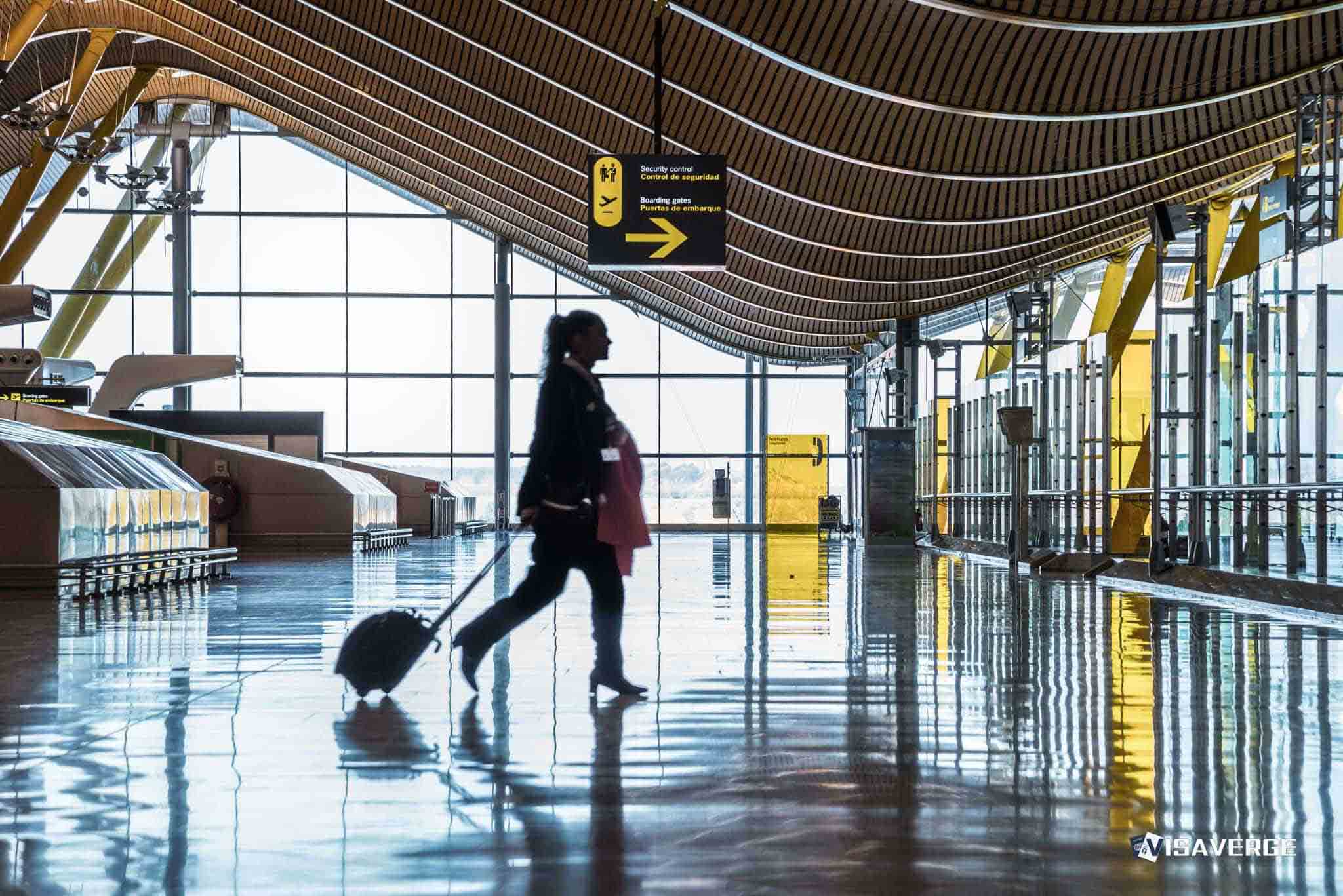(BROADVIEW, ILLINOIS) U.S. Department of Homeland Security Secretary Kristi Noem accused Illinois officials of disrespecting federal law enforcement after she and her team were turned away from restrooms at the Village of Broadview Municipal Building during an unannounced stop near the local Immigration and Customs Enforcement facility. The restroom denial occurred on October 3, 2025, and was captured in a short video now circulating online. Noem called the treatment “shameful,” while local staff said her entourage arrived without prior notice and that staff followed routine protocol.
According to DHS officials, the group stopped briefly at the Broadview building on the way to meet agents assigned to the nearby ICE field office. A staff member refused entry, citing lack of coordination. DHS Assistant Secretary Tricia McLaughlin later told reporters that Noem “didn’t ask for a meeting—she simply asked to use the restroom,” describing the refusal as “insane.” Noem then criticized Illinois Governor J.B. Pritzker, saying the village receives more than $1 million in federal funds each year and asking on social media, “Is this how JB Pritzker and his cronies treat our law enforcement?”

Village representatives said the visit was unscheduled and insisted no one intended a slight. They added that staff acted in line with local procedures. The restroom denial quickly became a political flashpoint because it happened in Broadview, home to one of the Midwest’s busiest ICE processing hubs and a frequent site of protests, policy fights, and court disputes over immigration enforcement.
Context: local-federal friction at the Broadview ICE site
Illinois is a “welcoming” or “sanctuary” state, with laws that limit how much local police share with federal authorities and restrict holding people beyond what state law allows. Supporters say these rules protect immigrants and keep community trust. Federal officials often argue that such limits make it harder to carry out arrests, transport people in custody, and coordinate during emergencies.
The Broadview facility has drawn attention for years. Local officials and DHS have clashed over new federal fencing installed around the ICE site, which village leaders say went up without municipal permits and could slow emergency access. A lawsuit filed by the village challenges the fencing on public safety grounds.
On the day of Noem’s stop, protests outside the facility led to tense moments and several arrests. Demonstrators accused federal officers of heavy-handed tactics, while DHS sources pointed to safety concerns near restricted areas.
That local-federal friction framed how both sides described the restroom denial. To Noem’s allies, it looked like a snub to a senior federal official trying to support agents on the ground. To immigrant-rights advocates and some city leaders, it showed a firm stance by a “sanctuary” jurisdiction at a time when they feel federal enforcement goes too far.
The moment traveled fast online because it was simple and visual: doors closed to the DHS chief. But underneath was a deeper debate over power, process, and respect across levels of government.
According to analysis by VisaVerge.com, incidents like this are more than social media fodder; they can signal a breakdown in routine cooperation that federal officers often rely on for fast access, quiet meetings, and basic logistics near sensitive sites. When even low-stakes requests turn into standoffs, it can sour working relationships that matter during high-stakes operations.
Implications for immigrants, workers, and students
Clashes between federal and local authorities shape daily life for many people, including:
- Undocumented residents and families with pending cases: Illinois policy limits may reduce the chance of local police transferring someone to federal custody after a minor stop, producing an uneven enforcement landscape across county lines.
- International students and skilled workers: When DHS focuses resources on enforcement flashpoints, case backlogs can grow elsewhere. That affects timelines for work permit renewals, change-of-status filings, and interviews at busy field offices.
- Immigration lawyers and clients: Practitioners note that outcomes can vary by jurisdiction — the same federal agency can encounter open doors in one locality and closed doors in another, even for routine requests.
Consequences include confusion, fear, and delays for mixed-status families. The dispute reinforces opposing narratives:
- Supporters of tougher enforcement say the Broadview episode confirms a belief that some local leaders don’t respect federal authority. Their argument: small refusals add up and could impede cooperation during complex operations.
- Immigrant-rights groups view the denial as local resistance to tactics they see as too aggressive. They prefer keeping municipal buildings free from federal activity to avoid deterring residents from public services.
Practical guidance for immigrants and students remains steady despite the headline drama:
- Keep critical documents current and carry copies.
- If stopped by police, ask if you are free to go; if not, request a lawyer and remain calm.
- For pending cases, follow case status online and save every notice.
- Students: stay in status, keep your I-20 or DS-2019 updated, and consult your school’s international office before travel.
These steps do not resolve policy disputes but help individuals protect themselves while the larger debate continues.
Broader stakes and next steps
Federal officials say they will continue working near the Broadview facility, despite protests and local disagreements. Illinois leaders say they will keep setting rules that reflect state law and community expectations. Each side cites safety, fairness, and the rule of law as guiding principles.
That said, incidents like a restroom denial can harden views and make calm coordination more difficult the next day. For families waiting on asylum hearings, students renewing work authorization, and employers watching labor needs, the cost is often time, stress, and uncertainty.
- Similar tensions have arisen in other sanctuary areas, from courthouse arrests to jail release notifications.
- Even minor logistical refusals can carry symbolic weight and complicate operational relationships.
DHS and ICE declined to detail any internal changes after the incident. Village officials said they stand by protocol and welcome scheduled visits. Both parties insist they are open to communication.
The core question: will either side see value in small courtesies that rebuild trust? In a complex system, small courtesies often carry bigger outcomes.
For authoritative information on local field operations and contact procedures, see the official page from U.S. Immigration and Customs Enforcement.
This Article in a Nutshell
On October 3, 2025, DHS Secretary Kristi Noem reported that she and her team were denied restroom access at the Broadview Municipal Building during an unannounced stop near a major ICE facility. The incident, captured on video and widely shared online, prompted DHS criticism and social media attacks on Illinois leadership; village officials responded that staff followed protocol because the visit lacked prior coordination. Broadview’s busy ICE processing site has been a long-running flashpoint over fencing, arrests, and the balance between federal enforcement and Illinois’ sanctuary-style limits. The episode underlines how small logistical refusals can symbolize larger breakdowns in cooperation, with consequences for immigrants, students, and workers facing delays, confusion, and uneven enforcement. Both sides say they remain open to communication, though tensions may complicate future coordination.













